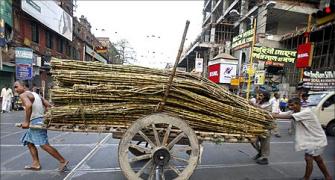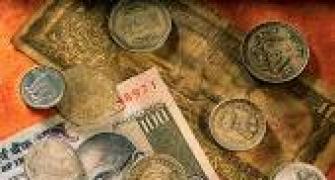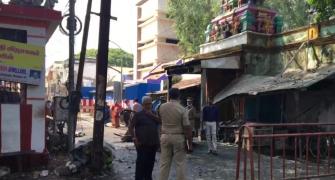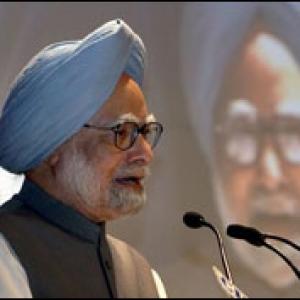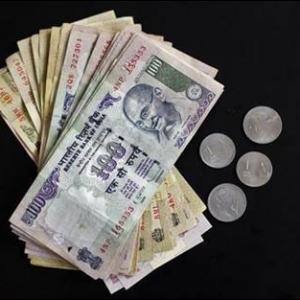 Amid the all-round clamour for reforms like doing away with fuel subsidies, Finance Minister Pranab Mukherjee on Monday said there is no 'headroom for running a proactive fiscal policy'.
Amid the all-round clamour for reforms like doing away with fuel subsidies, Finance Minister Pranab Mukherjee on Monday said there is no 'headroom for running a proactive fiscal policy'.
". . .the second round of global uncertainty and the slowdown has come rather quickly on the heels of the previous one, with practically no headroom for running a proactive fiscal policy," Mukherjee said at the annual conference of CBEC.
His comments come amid demand from various quarters that the government imitate bold reforms to boost the sagging economy.
The demand got a further clout after the economic growth in 2011-12 recorded the nine-year low growth of 6.5 per cent.
The Finance Minister, however, pinned hopes on declining global crude oil prices and normal monsoon in improving growth.
"A normal south west monsoon has been predicted for 2012-13 and there has been a rapid decline in international oil prices in recent weeks. . .All these factors should help in the recovery of domestic growth momentum," he said.
The economy has been going through a rough patch with high high fiscal deficit and current account deficit pulling down rupee to all-time record low of 56.52 against dollar and expansion in manufacturing and infrastructure being laggards.
The government's fiscal deficit during 2011-12 worked out to be 5.7 per cent of the GDP. The fiscal deficit, the difference between the government's total receipts and expenditure, stood at Rs 5,09,731 crore (Rs 5,097.31 billion) in 2011-12, as per the provisional data released by CAG recently.
The Centre is aiming to bring the fiscal deficit down to 5.1 per cent in the current fiscal.
Food, fertiliser and fuel subsidies account for a substantial part to the government revenue.
The government this fiscal has budgeted for Rs 75,000 crore (Rs 750 billion) of food subsidy Rs 61,000 crore of fertiliser subsidy and Rs 43,000 crore (Rs 430 billion) of fuel subsidy.
The government is targeting to cut the subsidy bill to below 2 per cent of gross domestic product this fiscal and 1.75 per cent in the subsequent years.
Prime Minister's Economic Council Chairman C Rangarajan had strongly favoured an immediate increase in prices of diesel and cooking gas to contain government expenditure.
"It (increase in prices of diesel and LPG) should be done, as early as possible. . .We need to take action. . . howsoever unpleasant it may be," he had said a few days after oil marketing companies increased petrol prices by the steepest ever Rs 7.54 a litre.
Highlighting 'positives' of Indian economy, Mukherjee said the interest rate cycle has been reversed by the Reserve Bank of India and mining sector growth has turned around.
Further, there has been progress in fuel linkage for power projects and improvement in investment growth rate, he emphasised.
There were no 'major adverse results' on corporate performance in the last quarter of 2011-12, he added.
The Indian economy registered healthy growth of 8.4 per cent in 2009-10 and 2010-11, but renewed global uncertainty, emanating mostly from Eurozone area affected domestic business sentiment in 2011-12.
A tight monetary policy directed at taming inflationary pressures in the economy also came in the way of consolidating economic recovery.
GDP growth in 2011-12 has slowed significantly to just 6.5 per cent and this has been 'disappointing', Mukherjee said.

